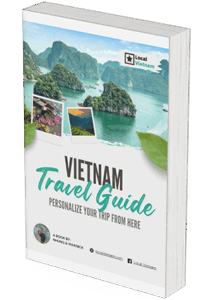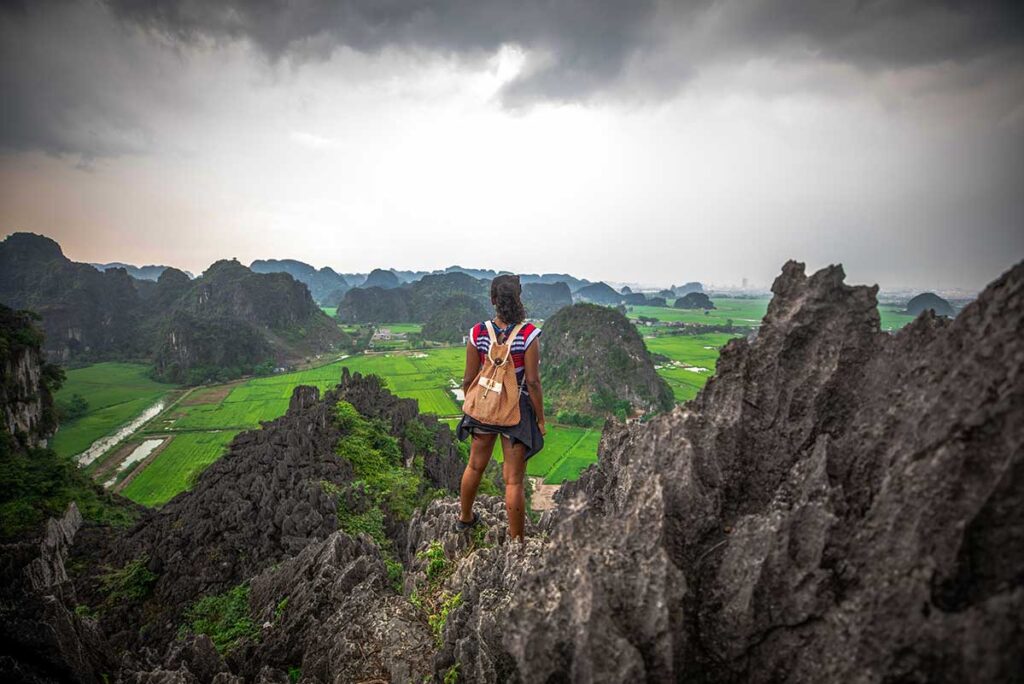1. Folk religion – The main religion in Vietnam
Folk religion is with almost 90 precent of the population, the biggest religion in Vietnam. Folk believes are a significant and deeply rooted aspect of Vietnamese culture. It is characterized by a blend of indigenous beliefs, ancestral worship, and believe in the existence of spirits.
In Vietnamese folk religion, people worship a variety of divine beings or gods and spirits, including ancestors, guardian spirits, village spirits, and nature spirits. They believe that these supernatural beings have the power to influence their lives and bring blessings or misfortune. Ancestor worship is particularly important, as ancestors are considered to be the guardians and protectors of the family.
Rituals and offerings play a central role in Vietnamese folk religion. It is common for households to have a designated prayer room that includes an altar. Traditionally, this room is located at the front of the house, facing outward. However, you can also find small altars in various public places such as shops, restaurants, and hotels.
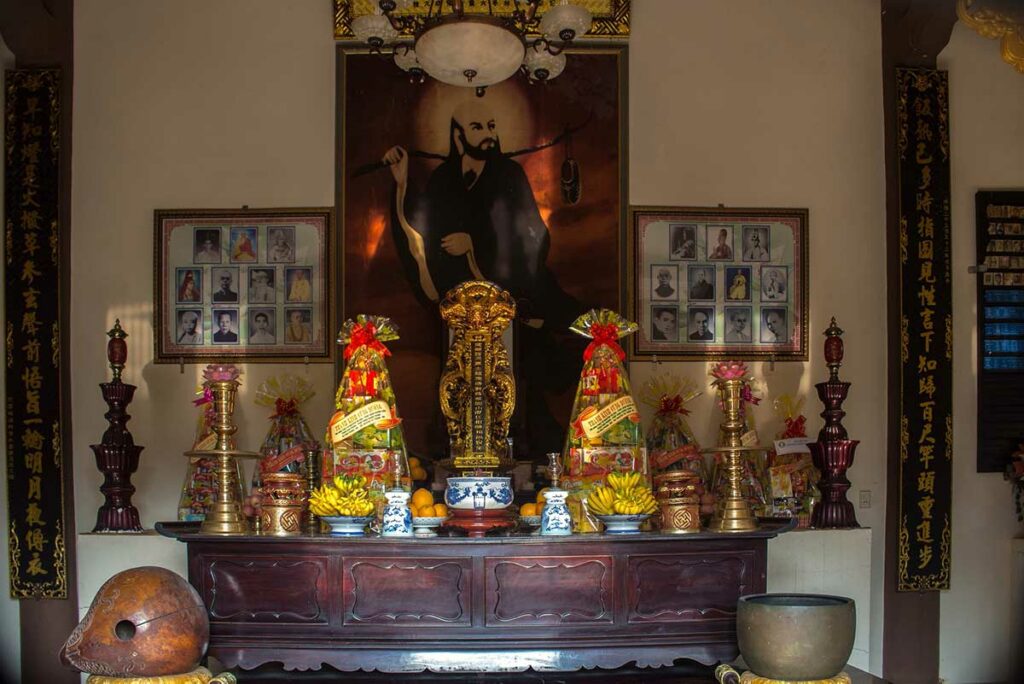
People often make offerings of food, incense, and other items to their ancestors and deities, seeking their guidance, protection, and blessings. These rituals are conducted both at home and at communal shrines or temples.
Folk religion in Vietnam is also marked by a rich calendar of annual events and festivals. These festivities are based on lunar calendar and vary by region and ethnic group. Tet, also known as the Lunar New Year, is the most significant and widely celebrated event in Vietnam. While Tet is not directly associated with folk religion, it holds great cultural and traditional importance for the Vietnamese people.
Tet marks the beginning of the lunar calendar year and is a time for family reunions, festivities, and paying respects to ancestors. Vietnamese families clean and decorate their homes, visit temples and pagodas to pray for good fortune, and prepare special meals and offerings for their ancestors.
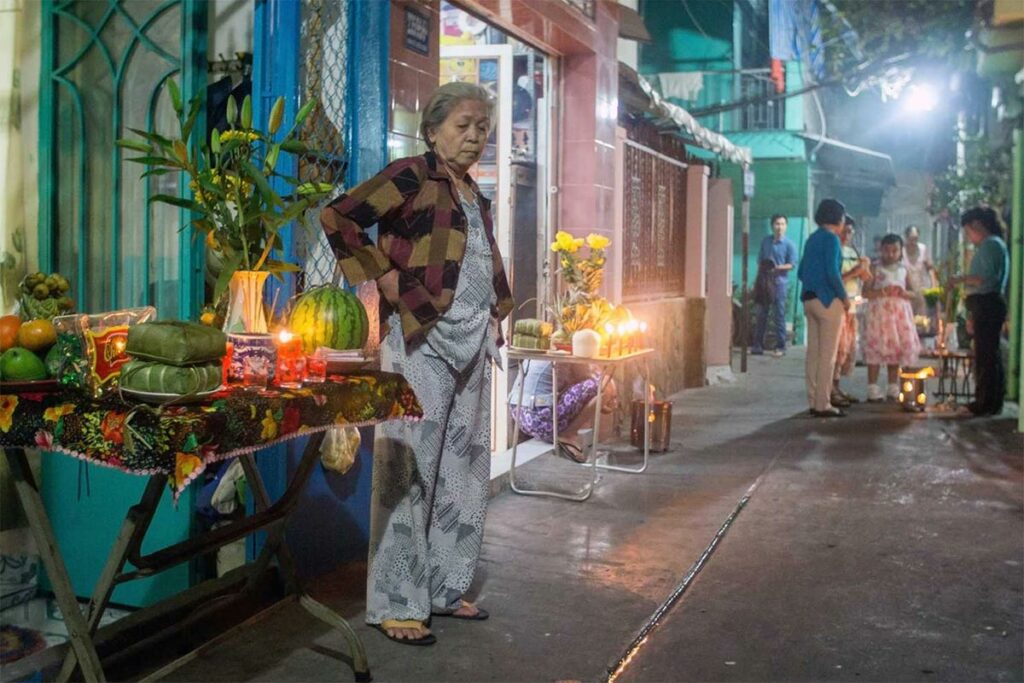
Overall, folk religion in Vietnam reflects the deep spiritual connection of the Vietnamese people with their ancestors, nature, and the unseen world. It is an integral part of their cultural identity and continues to be practiced and celebrated with great reverence and enthusiasm throughout the country.
2. Buddhism
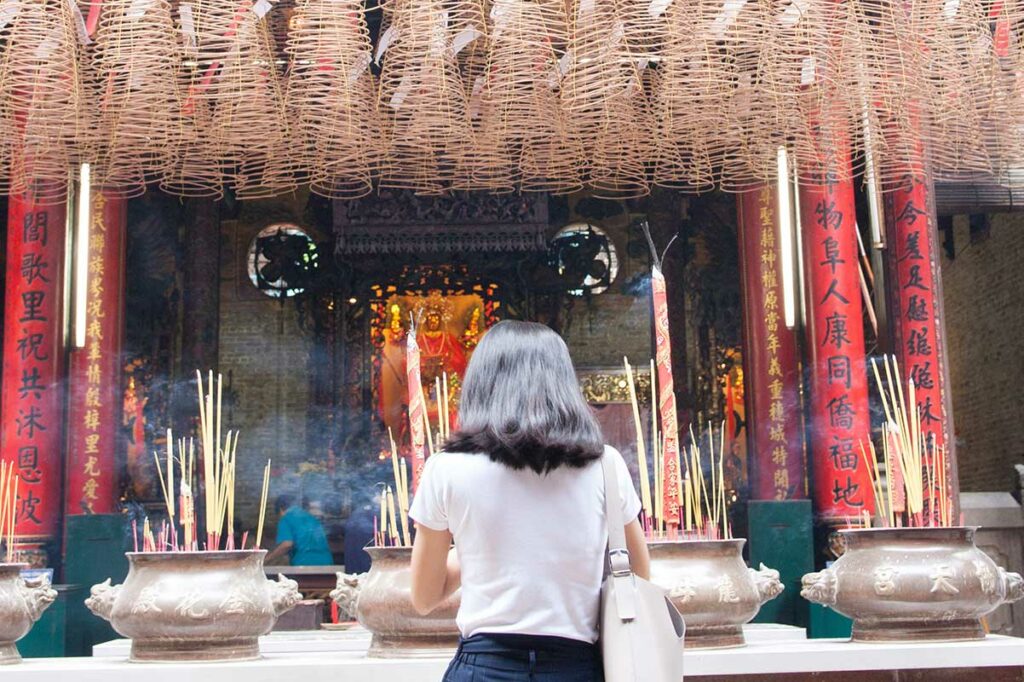
Buddhism holds a significant presence in Vietnam, with temples and pagodas adorning the landscape. Surprisingly, despite the visible presence, only about 10% of the Vietnamese population identifies as Buddhist. Folk Religion takes precedence as the largest religious belief system in Vietnam. Many temples serve as multi-purpose spiritual spaces, accommodating both Buddhist practices and the folk traditions of praying for ancestors and to spirits, and seeking blessings for good fortune.
Buddhism in Vietnam encompasses various traditions, including Mahayana and Theravada, with followers engaging in meditation, mindfulness, and the pursuit of enlightenment. Monks play a vital role in the community, providing guidance and performing ceremonies, while Buddhist festivals and rituals offer opportunities for spiritual reflection and communal celebration.
3. Christianity (Catholicism & Protestantism)
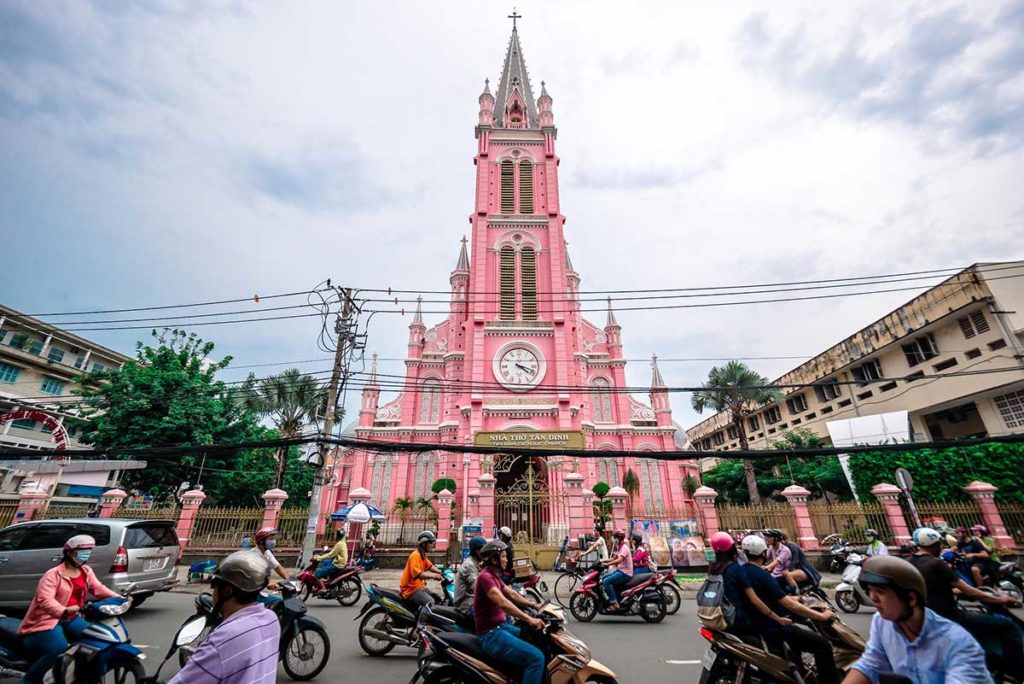
Christianity in Vietnam comprises a minority religious group, accounting for approximately 8% of the Vietnamese population. The majority of Vietnamese Christians identify with Catholicism, while a smaller portion follows Protestantism. The country is home to numerous stunning churches, particularly in major cities, showcasing architectural beauty and serving as places of worship and community gathering.
Additionally, many ethnic minority villages in the central highlands have a significant Christian presence, a result of French missionaries who arrived during the colonial era to propagate the faith.
Christian practices in Vietnam involve attending church services, participating in sacraments, and engaging in prayer and religious study. The churches in Vietnam represent not only places of worship but also important cultural and historical landmarks within the country.
4. Hoahaoism
Hoahaoism is a syncretic religion that originated in Vietnam in the 1930s. It combines elements of Buddhism, Confucianism, Taoism, and other indigenous beliefs. Hoahaoists believe in the worship of a supreme deity and emphasize morality, self-cultivation, and social harmony. With a significant following in Vietnam, Hoahaoism has its own temples and spiritual practices, and its adherents engage in prayer, meditation, and community activities.
5. Caodaism
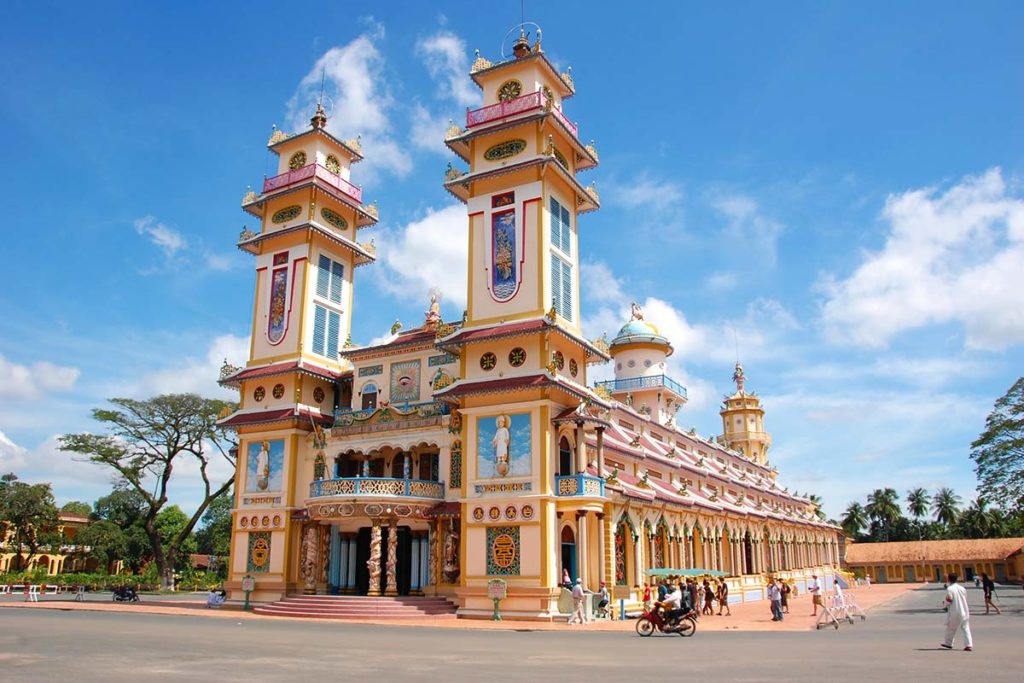
Caodaism is a unique religion that was established in Vietnam in the 1920s. It combines elements of Buddhism, Confucianism, Taoism, Christianity, and other spiritual traditions. Cao Dai followers worship a supreme deity known as the “Cao Dai” and believe in the teachings of various spiritual masters. The most famous Cao Dai temple, the Holy See or Tay Ninh Temple, is located near Ho Chi Minh City and serves as the religion’s headquarters. The temple is known for its vibrant architecture and colorful ceremonies, attracting both tourists and devotees.
